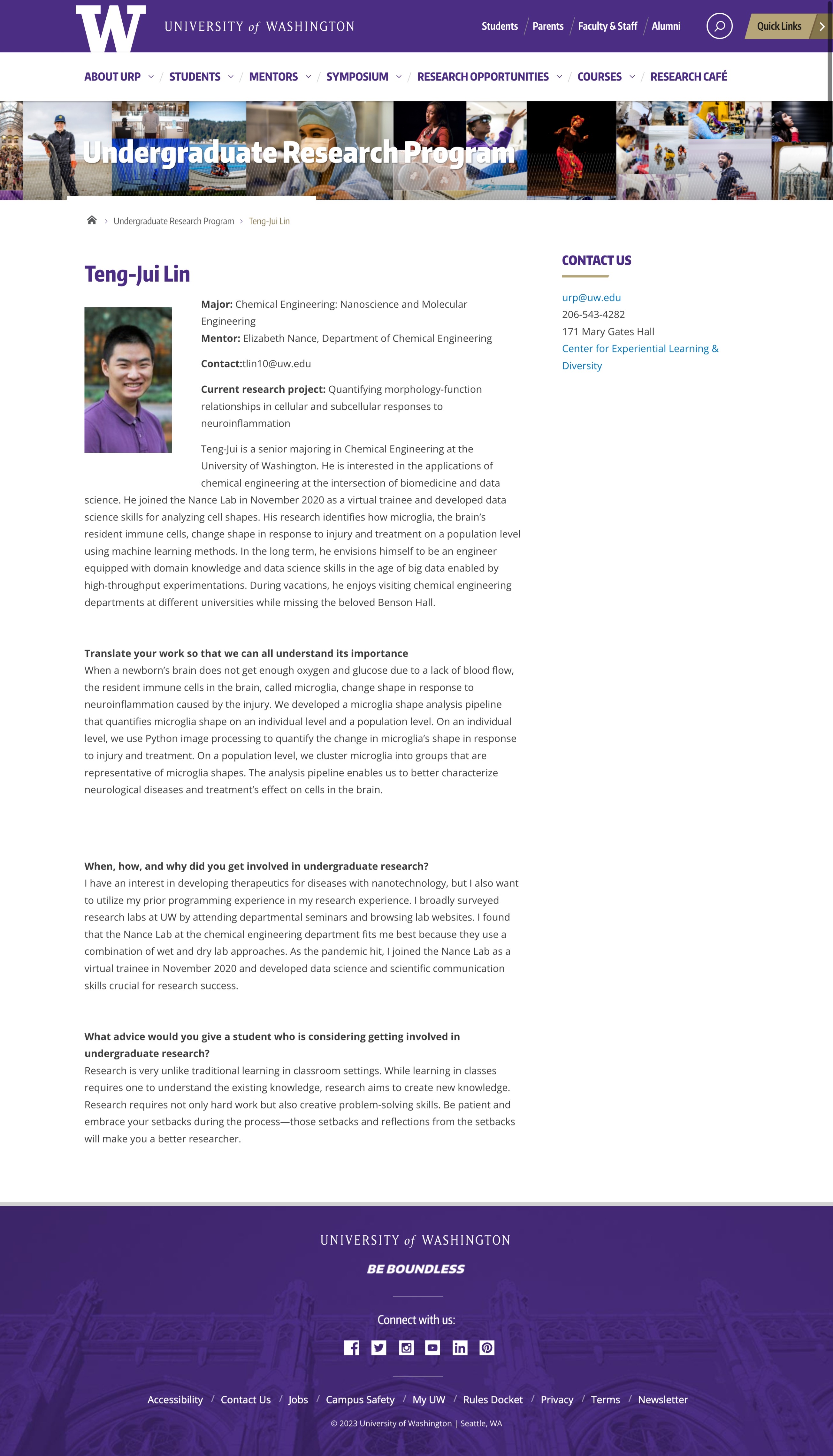Teng-Jui Lin joined the undergraduate research leaders team to promote undergraduate research across the campus.
Biography
Teng-Jui is a senior majoring in Chemical Engineering at the University of Washington. He is interested in the applications of chemical engineering at the intersection of biomedicine and data science. He joined the Nance Lab in November 2020 as a virtual trainee and developed data science skills for analyzing cell shapes. His research identifies how microglia, the brain’s resident immune cells, change shape in response to injury and treatment on a population level using machine learning methods. In the long term, he envisions himself to be an engineer equipped with domain knowledge and data science skills in the age of big data enabled by high-throughput experimentations. During vacations, he enjoys visiting chemical engineering departments at different universities while missing the beloved Benson Hall.
- Major: Chemical Engineering: Nanoscience and Molecular Engineering
- Mentor: Elizabeth Nance, Department of Chemical Engineering
- Current research project: Quantifying morphology-function relationships in cellular and subcellular responses to neuroinflammation
Translate your work so that we can all understand its importance
When a newborn’s brain does not get enough oxygen and glucose due to a lack of blood flow, the resident immune cells in the brain, called microglia, change shape in response to neuroinflammation caused by the injury. We developed a microglia shape analysis pipeline that quantifies microglia shape on an individual level and a population level. On an individual level, we use Python image processing to quantify the change in microglia’s shape in response to injury and treatment. On a population level, we cluster microglia into groups that are representative of microglia shapes. The analysis pipeline enables us to better characterize neurological diseases and treatment’s effect on cells in the brain.
When, how, and why did you get involved in undergraduate research?
I have an interest in developing therapeutics for diseases with nanotechnology, but I also want to utilize my prior programming experience in my research experience. I broadly surveyed research labs at UW by attending departmental seminars and browsing lab websites. I found that the Nance Lab at the chemical engineering department fits me best because they use a combination of wet and dry lab approaches. As the pandemic hit, I joined the Nance Lab as a virtual trainee in November 2020 and developed data science and scientific communication skills crucial for research success.
What advice would you give a student who is considering getting involved in undergraduate research?
Research is very unlike traditional learning in classroom settings. While learning in classes requires one to understand the existing knowledge, research aims to create new knowledge. Research requires not only hard work but also creative problem-solving skills. Be patient and embrace your setbacks during the process—those setbacks and reflections from the setbacks will make you a better researcher.
Feature
Link: https://www.washington.edu/undergradresearch/teng-jui-lin/
